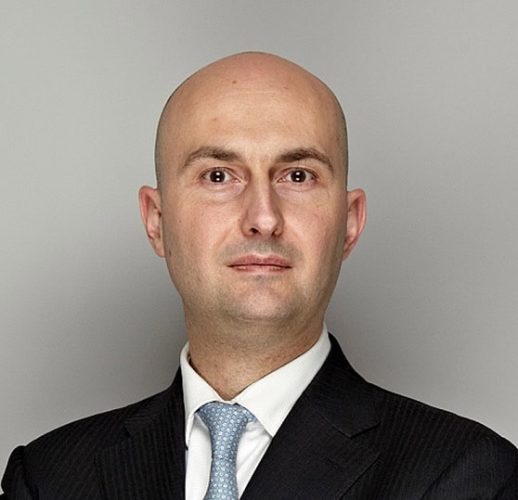Francesco Burelli* with 23 years of banking and advisory experience in digital banking believes lack of regulation, oversight standards and good governance frameworks are challenges of blockchain. In general, these challenges are universal and true for any industry and public sector office alike.
He said government measurements are identification of the use case where blockchain can provide an advantage, functional, economic or both, compared to existing technology stacks.
We had an interview with him about blockchain technology and its challenges.
– Why, despite the great emphasis on the many usages of blockchain technology, still we do not see its rapid expansion, especially by governments and cyber giants?
Blockchain is a fairly recent new technology type. While it has some unique features, namely the immutability and its distributed, decentralised structure, in general terms and with some exceptions, it is still presenting challenges for large scale industrial applications. Governments and large corporates consider their technology options on the basis of business cases, in this case a differential business case compared to established technologies, and require a degree of maturity, both in terms of regulatory approval as well as proven solution.
-Blockchain technology is not well known in the field of public services. In your opinion, what is the most important service that can be provided to people through this technology?
Blockchain is being considered to underpin public registry infrastructure, for electronic voting, benefit distribution, identity management, central banking infrastructure but if I had to pick up the most promising one is public procurement. Governments, across all of their central and local units, are collectively the major buyer of goods and services in any country with processes that can be complex, discretionary and opaque, hence potentially plagues by inefficiency and possible mismanagement. In the context of procurement, blockchain would potentially enable oversight and enable real-time update and visibility of process statuses.
– In your opinion, what will be the perspective of using blockchain in industries in the coming years?
Logistics is an industry in which blockchain is being used to manage tracking and the documentary flow interactions across the handling and consignment flows. DHL, Alibaba and IBM are some of the biggest brands that are in production with such applications. IBM has a joint initiative with Maersk: Tradelens, a cargo container logistical solution on blockchain. At the same time IBM has launched a consortium for the digital media supply chain with Mediaocean, one of the world’s largest digital agencies. This is one of the industries that are most advanced in the application of the technology but they are far from having an exclusive position.
– At present, in what fields and services are the biggest implementation applications of blockchain in the world?
Supply chainis the industry in which blockchain has been most widely adopted, this point was touch upon in my previous answer. Other industries in which blockchain in being tested and rolled out include Constructions and Architecture. HerenBouw, a Dutch construction company, has used blockchain to manage the documentary flow and track development progress over a large development project. In the hospitality sector, Dtravel compete with AirBnB’s home sharing solution though a blockchain based, community governed platform. Honeywell Aerospace’s GoDirect Trade is a blockchain market place enabling maintenance and reselling of parts and components.

The financial services industries, amongst others, in which blockchain is being tested. Aside from retail Central Bank Digital Currencies, testing has validated the viability of wholesale CBDC for settlement and as the underlying infrastructure for complex financial products such as syndicated loans and letters of credit.
-Please, give statistics about blockchain market and leading countries in this field?
Estonia was the earliest nation to develop and roll-out a e-residency infrastructure based on blockchain with integration with government, medical and banking services with reconciliations taking place through this technology. It was also the first country to establish a voting system based on the same. The US is also a market with significant blockchain focused venturing and innovation; based on Blockchain Council’ statistics, nearly 40% of all blockchain start-ups are based in the US. The Bahamas launched in 2017 its Central Bank Digital Currency (CBDC). China is also in advanced stage of testing its CBDC, this is leaving aside that Alibaba has been one of the earliest companies to manage its inventories and logistics internationally.
There are companies and organisations, researching and rolling out solutions based on blockchain almost globally.
-How does blockchain improve countries economy (especially in developing countries)?
Blockchain has the potential of enabling modernization of outdated infrastructure and enforcing accountability and oversight at, subject to the selection of an low energy consuming protocol, a potentially lower cost. This in particular would benefit any applications and use cases that would benefit from increased transparency and real-time auditability and oversight, these could range from procurement to benefits disbursement.
This said, these features would also benefit a number of OECD countries too.
-What steps should governments take to make the best use of the blockchain?
The first step is the identification of the use case where blockchain can provide an advantage, functional, economic or both, compared to existing technology stacks. Engaging with analysis and experimentation is the following step, whereas collaboration with other public or private organizations, engaged in similar research and evaluations, would also provide accelerated learnings and economies of scale and scope in the research.
– What are the challenges of using a blockchain? For various industries? (for example: infrastructure, cost, knowledge and etc.)?
There are a variety of challenges that face any industry looking at blockchain applications. The first one is interoperability, an issue that initially challenged the potential connectivity between blockchain and more established applications based on centralise database infrastructure. While this has challenge has been mostly addressed, there is still a significant interoperability challenge across blockchain protocols. The establishment of industry-wide standards would mitigate connectivity and collaboration within and across industries.
A second challenge is the processing cost for some protocols, this is not impacting the possible economic sustainability of blockchain applications but also causing conflict with boards’ ESG’s sustainability priorities.
Some protocols could be slow in processing limiting the applicability to any type of application requiring low latency.
The quality of the data that is recorded in a blockchain is also a challenge. Low quality data is an issue affecting any type of database, regardless is centralised or distributed. The fact that blockchain entries are immutable, compound the challenge of ensuring the quality of the data recorded on it.
Lack of regulation, oversight standards and good governance frameworks that are also a potential barrier. In general, these challenges are universal and true for any industry and public sector office alike.
( *A bout Francesco Burelli: Partner at Arkwright Consulting AG with over 23 years of banking and advisory experience in digital banking, open banking, retail, corporate and government payments, and cross-industry platforms and ecosystems. Before his consulting career, Francesco worked at Midland Bank / HSBC.
INSEAD alumnus, Co-author, together with Andrew Shipilov, Professor and Strategic Management area chair at INSEAD, of the Ecosystem Canvas and Ecosystem Canvas Timeline framework. INSEAD Alumni Association UAE Executive Committee member, Francesco complements his executive profession with industry research, publishing and think-tanks positions. Fellow of the London Institute of Banking & Finance, Francesco was awarded Fintech Startup Bootcamp’ Best Fintech Mentor of the Year Award 2015, ATM Industry Association’s Industry consultant of the Year 2014. )
















